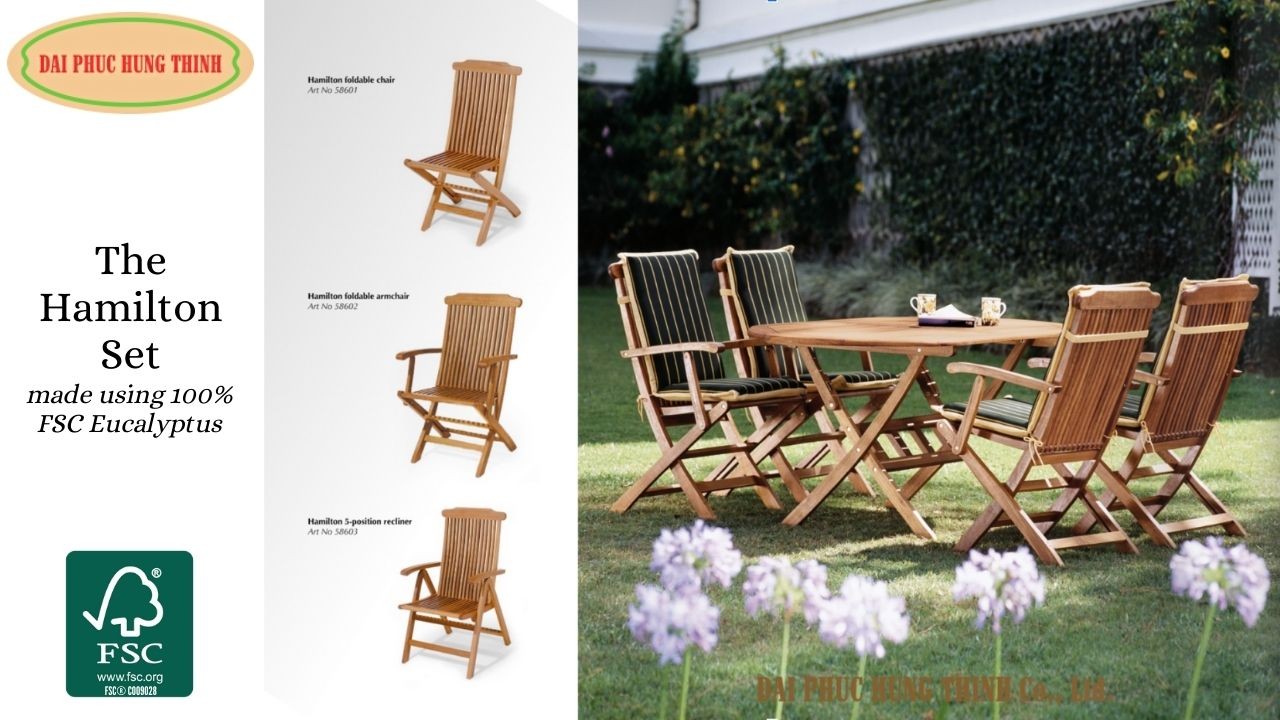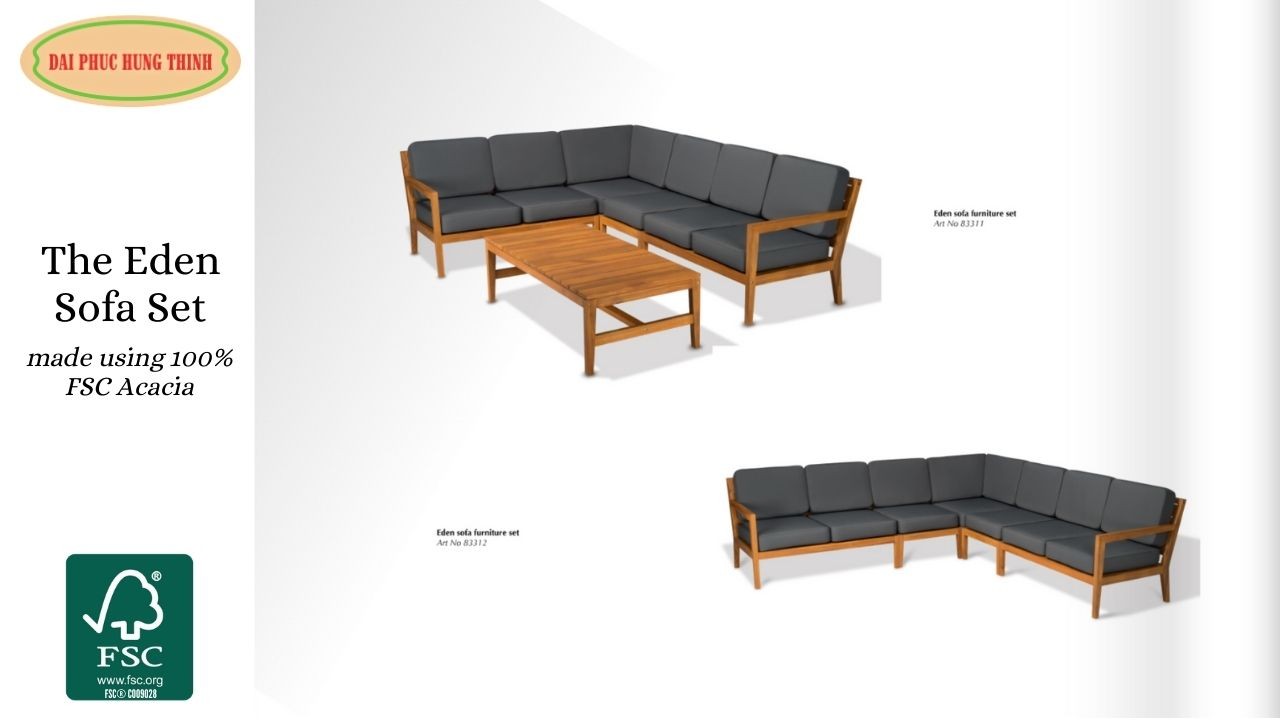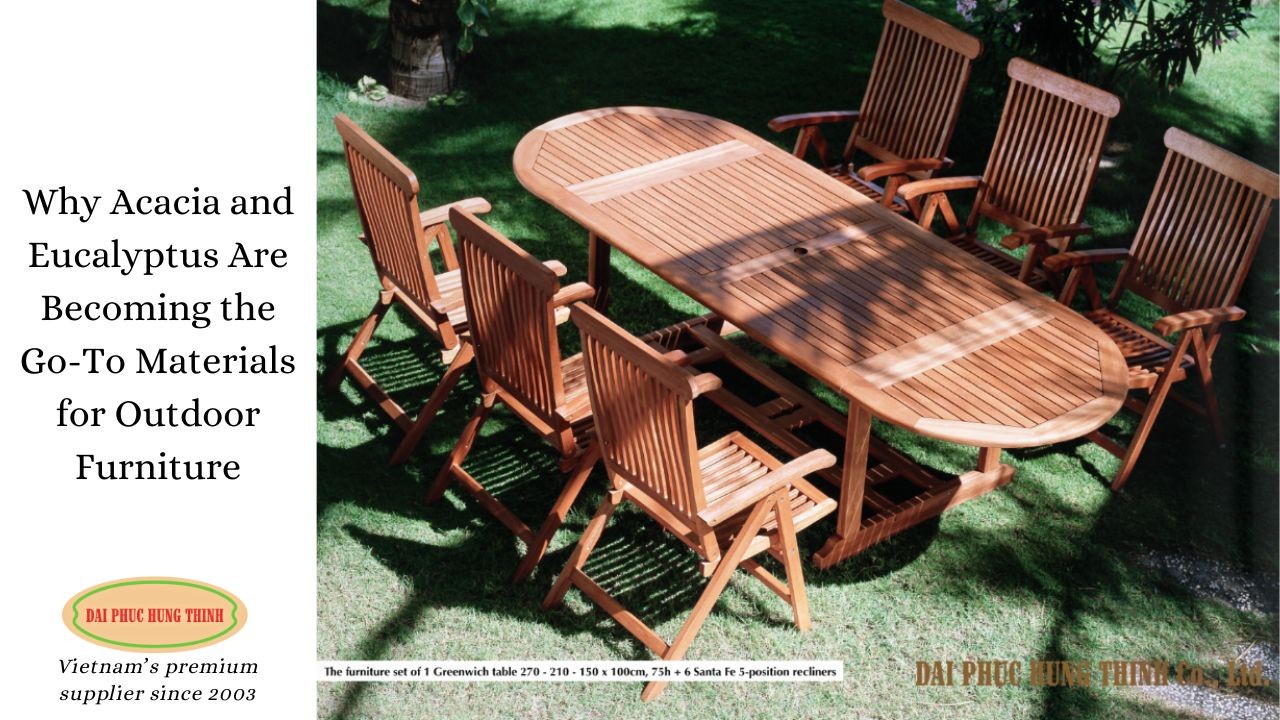In recent years, European and North American furniture buyers have shown a strong shift toward sourcing outdoor furniture made from sustainable, high-quality materials. Two woods leading this trend are Acacia and Eucalyptus, both prized for their durability, aesthetic appeal, and eco-friendly credentials.
In this newsletter, we’ll dive into what makes these hardwoods stand out, and why they’re becoming top choices for savvy buyers in today’s market.
Growing Interest in Sustainable Hardwoods
According to a 2022 report by The Freedonia Group, the global outdoor furniture market is expected to reach nearly USD 30 billion by 2027, with a notable portion attributed to hardwood materials that promise both resilience and environmental responsibility. Within this hardwood category, Acacia and Eucalyptus have emerged as top contenders.
A 2021 consumer trends survey by the European Garden & Outdoor Living Association (EGOLA) found that online searches and trade inquiries for “Acacia garden furniture” and “Eucalyptus patio sets” rose by approximately 22% between 2018 and 2021 in the EU and North America. The study noted that buyers were attracted not only to the woods’ natural beauty, but also to their certified sustainable origin—a factor that resonates strongly with today’s conscientious consumer.

Understanding the Appeal of Hardwood Outdoor Furniture
The growing preference for Acacia and Eucalyptus stems from their exceptional physical properties.
Acacia boasts a Janka hardness rating of 1,430 lbf (pounds-force), while Eucalyptus measures at 1,100 lbf. These impressive ratings translate to exceptional resistance against wear, dents, and scratches – crucial qualities for furniture exposed to outdoor conditions.
Both woods contain high levels of natural oils that provide inherent protection against moisture damage, UV radiation, insect infestation, and fungal growth. These natural properties significantly reduce the need for chemical treatments while extending the furniture's lifespan.
 The Environmental Edge
The Environmental Edge
In an era where environmental consciousness drives purchasing decisions, these hardwoods offer compelling advantages. Eucalyptus is particularly notable for its rapid growth rate, making it a highly renewable resource. Acacia, while growing more slowly, offers excellent yield per acre due to its dense growth patterns.
The environmental impact of hardwood furniture production is significantly lower than synthetic alternatives. While plastic furniture production generates approximately 2.5 kg CO2 per kg of material, hardwood furniture produces only 0.8 kg CO2 per kg when sustainably sourced – representing a 68% reduction in carbon emissions.
Market Performance and Consumer Trends
Recent market analysis reveals a strong upward trend in sustainable outdoor furniture sales, with a 35% year-over-year growth. This growth is driven by increasing consumer awareness of environmental impact and a growing preference for FSC-certified products.
While hardwood furniture typically commands a higher initial price point, its value proposition becomes clear when considering longevity. With a lifespan of 15-20 years compared to 5-7 years for plastic alternatives, hardwood furniture offers superior long-term value and better resale potential.

Certified Excellence with Dai Phuc Hung Thinh
At Dai Phuc Hung Thinh Furniture, we’ve specialized in supplying 100% FSC-certified acacia and eucalyptus garden furniture since 2003—nearly 22 years of commitment to quality, sustainability, and reliability.
Our factory is FSC-certified, and we, as an exporter, hold both FSC (FSC®C009028) and ISO certifications—verified annually by SGS, a global leader in inspection and certification services.
This ensures that every piece of furniture we deliver adheres to the highest international standards, giving you and your customers confidence in our products' quality and sustainability.
Contact us today at sales@daiphuchungthinh.com.vn!


